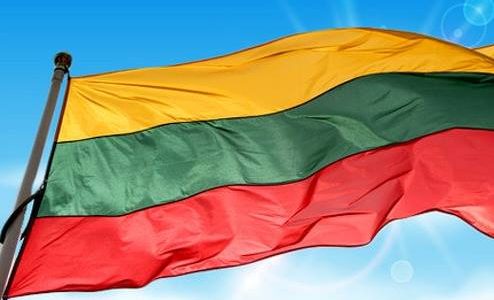In a referendum this May, Lithuanian citizens will vote on amendments to article 12 of the Lithuanian constitution, the highest law in the land, to allow for the preservation of Lithuanian citizenship:
“Citizenship in the Republic of Lithuania is acquired through birth and other paths laid down in constitutional law. A natural-born citizen of the Lithuanian Republic who acquires citizenship of a country meeting the European and trans-Atlantic criteria chosen and defined by the Republic of Lithuania does not lose citizenship in the Republic of Lithuania. In other cases a citizen of the Republic of Lithuania cannot at the same time be a citizen of a different country, except through exceptions laid down in constitutional law. Constitutional law determines the procedure for the acquisition and loss of citizenship.”
Considering the language of the constitutional amendment and taking into account as well the accessible material accompanying the referendum, it’s important to note several important matters:
1. The position proposed that a Lithuanian citizen who is a citizen by ethnic origin has the opportunity to preserve Lithuanian citizenship while acquiring citizenship in another country.
1.1 The explanatory note accompanying the resolution by the Lithuanian parliament for the referendum to amend article 12 of the Lithuanian constitution (hereinafter explanatory note) talks of the expansion of the institution of dual citizenship, offering an opportunity to preserve Lithuanian citizenship while acquiring the citizenship of a different country.
1.2 Examining this position, it seems to be the case that a Lithuanian citizen is a citizen not by virtue of ethnic origins, i.e., who has acquired Lithuanian citizenship through other means (naturalization, restoration of citizenship, etc.) would not have the right to preserve Lithuanian citizenship in acquiring citizenship in another country.
2. A citizen of Lithuania who is a citizen by virtue of origins would have the opportunity to preserve Lithuanian citizenship while acquiring the citizenship of another country meeting the criteria of trans-Atlantic and European integration.
2.1 The explanatory note says a working group formed by the Lithuanian parliament to solve dual-citizenship issues had decided to recommend to parliament to recognize as states meeting the criteria of trans-Atlantic and European integration the member-states of NATO and the Organization for Economic Co-operation and Development. Nonetheless, so far there is not binding legal act defining which states meet the criteria, and it is unknown what sort of legislation might be adopted detailing these criteria and the procedure for acquiring citizenship. Even after these criteria are defined in binding law, it is possible the Republic of South Africa, Argentina, Brazil, a number of progressive states in Asia and others might not meet the criteria.
It is also questionable whether this constitutional restriction based on insuring national security interests and other interests of the Lithuanian state is a proportional and well-founded measure in terms of obligations adopted in international treaties ratified by Lithuania. In light of the information available, this restriction could have aspects of indirect discrimination and could restrict the parties involved beyond the extent needed to insure the achievement of legal regulation.
3. If this amendment of a blanket nature to article 12 of the Lithuanian constitution is adopted (the amendment would come into force January 1, 2020), it’s not clear how and from when it would begin to operate in practice, without the constitutional legislation mentioned therein being adopted as well, i.e., the real content of this position and its practical working would only became clear after the corresponding constitutional laws were adopted later.
4. It is very probable the amendment would at this time only provide a theoretical avenue for new émigrés to preserve Lithuanian citizenship, while it most likely would not affect the legal status of those who were deprived of Lithuanian citizenship at an earlier time, e.g., those who migrated to Israel in 1991, acquired Israeli citizenship and so lost Lithuanian citizenship. The amendment most likely would have no effect either on the legal statues of those who left Lithuania during World War II, e.g., Jews who were evacuated from Lithuania and who were deprived of Lithuanian citizenship during the period of foreign occupation (see part 3 of article 2 of the Lithuanian Law on Citizenship). The current language of the Law on Citizenship fails to provide for a large portion of Litvaks who suffered during the war and their descendants to restore their Lithuanian citizenship held before the war and in these cases the adoption of the referendum measure would have no effect: this issue isn’t the subject of this referendum.
Taking into consideration the abstract and blanket language of the proposed amendment to the Lithuanian constitution and honoring the rule of law, legal certitude and the general principles of legislation, the publicity program for the referendum can be seen as only partially disclosing the contents of the referendum measure being presented, which raises doubts on whether the result of the referendum would really reflect the will of the citizens of the Republic of Lithuania.
Information:
Monika Antanaitytė, +37067240942


